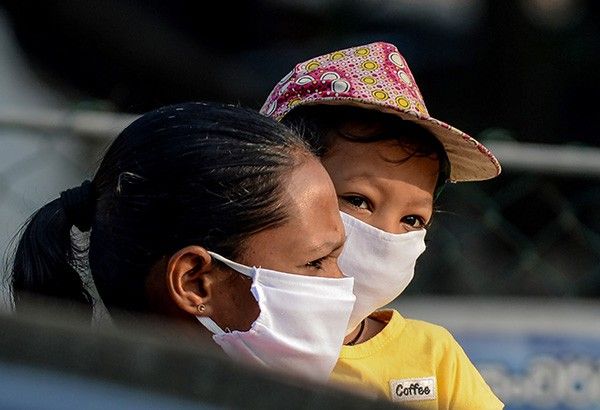Will it actually help the economy? Leachon says ‘very risky’ to allow minors to go out

MANILA, Philippines — A former adviser to the COVID-19 task force questioned its decision to ease age-based restrictions in some areas on account of the economy, calling such logic counterintuitive.
The Inter-Agency Task Force for the Management of Emerging Infectious Diseases on Thursday decided to allow children ten years old or older to leave their homes in areas under Modified General Community Quarantine (MGCQ) starting February 1.
The decision came after a long-running push from the National Economic and Development Authority to allow more age groups to go out again. The agency reasoned that 50% of economic activities are driven by family activities and are therefore critical to the country’s recovery. If kids are restricted from going out, NEDA said, it follows that parents are also kept inside to take care of them.
But Dr. Tony Leachon, a health reform advocate and former adviser to the coronavirus task force, on Friday said he could not reconcile such logic. "It is quite counter-intuitive that the IATF would allow kids who are above 10 years old to go out to the malls when they are actually have not allowed kids to have face-to-face interaction in classes," he told ANC's "Dateline Philippines."
"I don't understand why spurring economic growth is a reason to allow kids to go out," Leachon also said.
"You cannot make the economy grow as long as our numbers are up," he said, referencing the rise in cases due to the post-holiday surge. According to Leachon, deaths are also on the rise with the case fatality at almost 2%, the highest its been since August.
"I think they need to understand, as long as we don't control [coronavirus] transmission and the cases are up, we cannot reopen the economy," he said. "If you don't understand that, then you're part of the problem."
While age restrictions are being eased in MGCQ areas, Leachon warned that several of these places are also experiencing a surge in cases due to the slew of typhoons last year that forced hundreds of thousands into evacuation centers where minimum health standards are hard to enforce.
The UK variant and children as possible superspreaders
Another factor that should be considered, Leachon said, is the recent presence of a new and more transmissible variant — which emerged in the United Kingdom — in the Philippines.
"[W]e know that this particular variant is more common in [those] less than 20 years of age and this has been proven in several studies in the UK and the US," he said.
"And [the variant] is highly transmissible, this is about 70% to 80%, and if the kids are allowed to go out they might actually be superspreaders who might be asymptomatic and carry this particular virus at home."
Citing studies conducted by Princeton and Harvard, Leachon said kids can have increased viral load but carry "no symptoms at all" which could be very misleading.
He added that Princeton conducted its studies in India whose households are multi-generational like they are in the Philippines.
"In one house, you can have your lola, your lolo, your parents, your aunties and all. And considering the size of the houses, I dont think we can actually maintain the social distancing measures," he warned. "So this would be a problem, particularly in densely populated areas."
"It might be deceptively benign, but to me, reading all these journals and articles, it might be very risky for the Philippines," the doctor added.
Proposed compromise: Allow kids to be outdoors, not in malls
For Leachon, an acceptable compromise would be to set clear guidelines and limitations for minors who are allowed to leave their homes.
"Perhaps the sweet spot is you can allow them to go to the parks, where there is actually an increase in ventilation," he said. "But enclosed areas like the malls that would be very dangerous."
Leachon added that children should not be leaving their homes on an everyday basis.
As of this writing, the health department has logged 507,717 cases of coronavirus in the country along with 10,116 deaths. It has been 313 days since parts of the country were first placed under lockdown. — with a report from Gaea Katreena Cabico
- Latest
- Trending



































